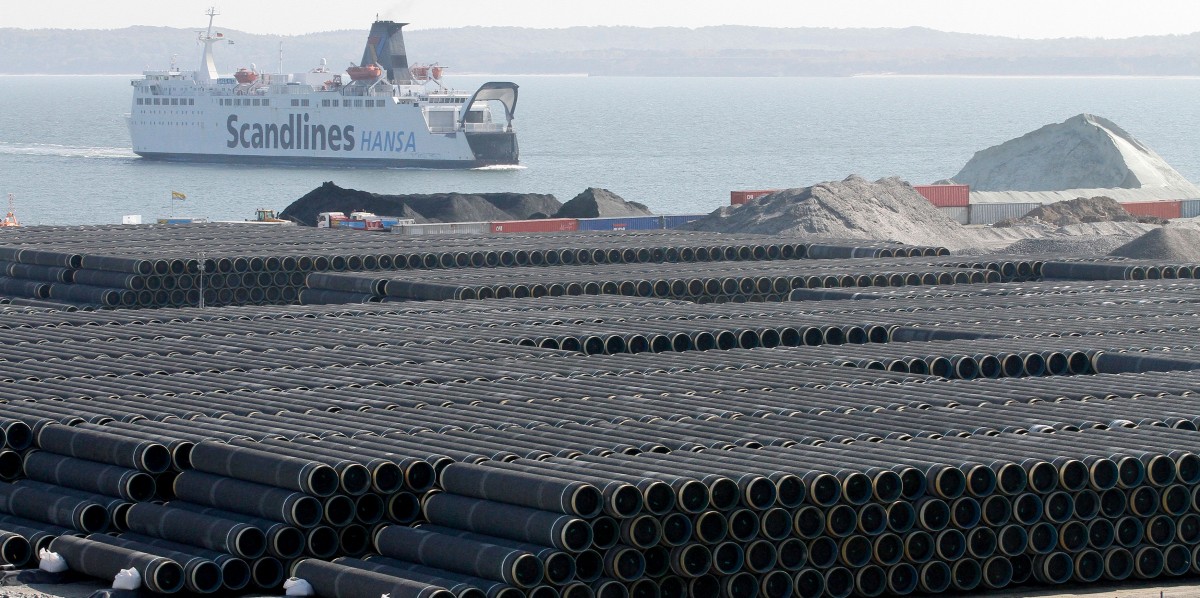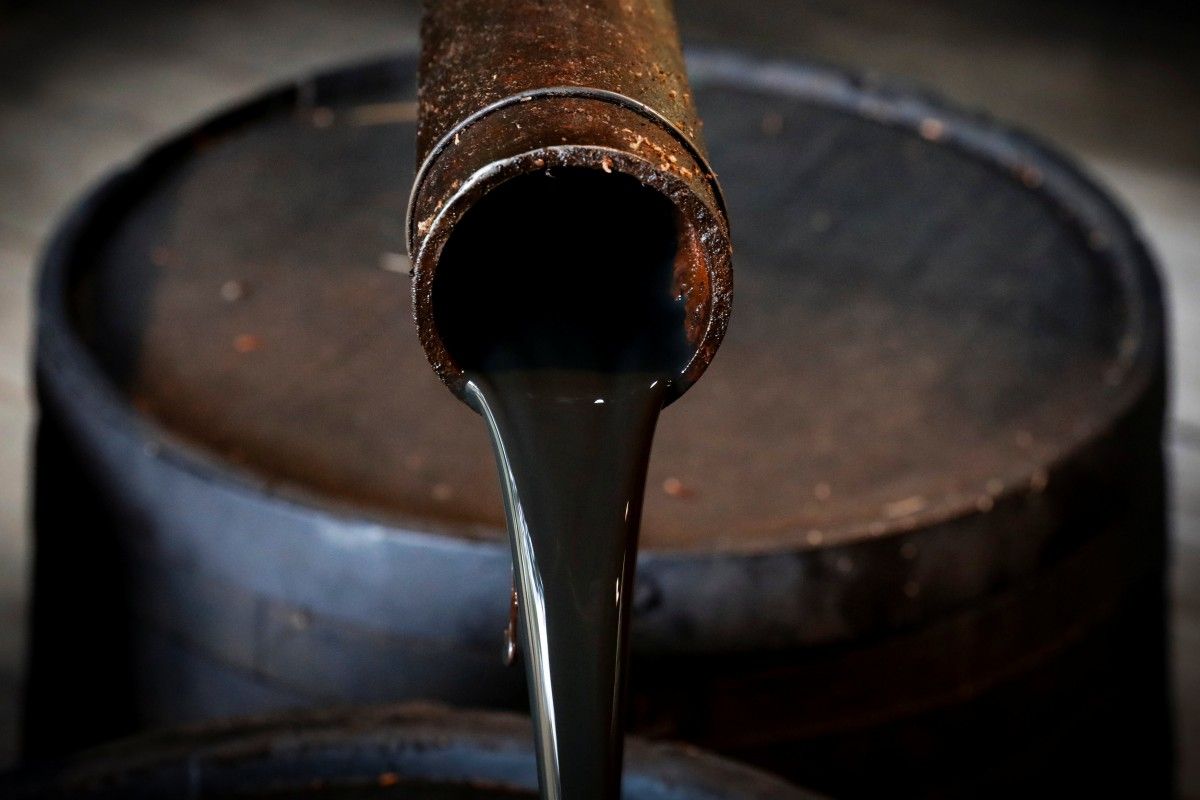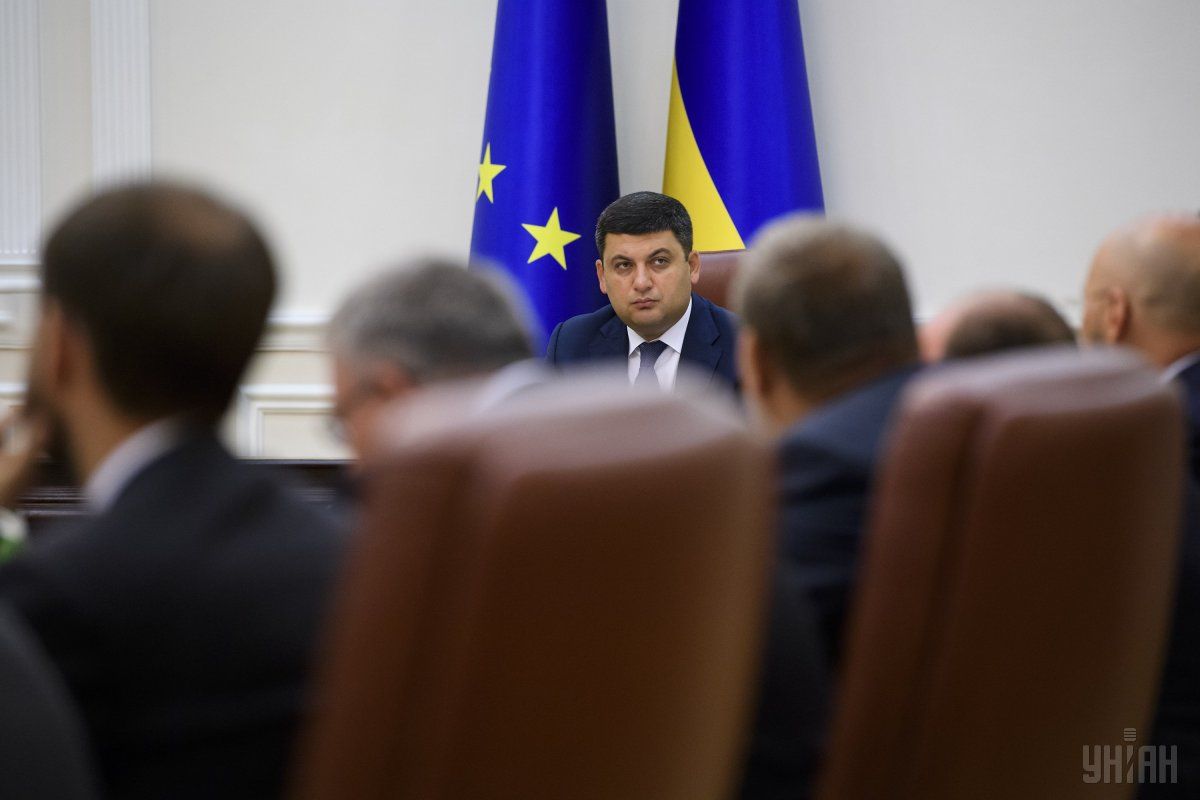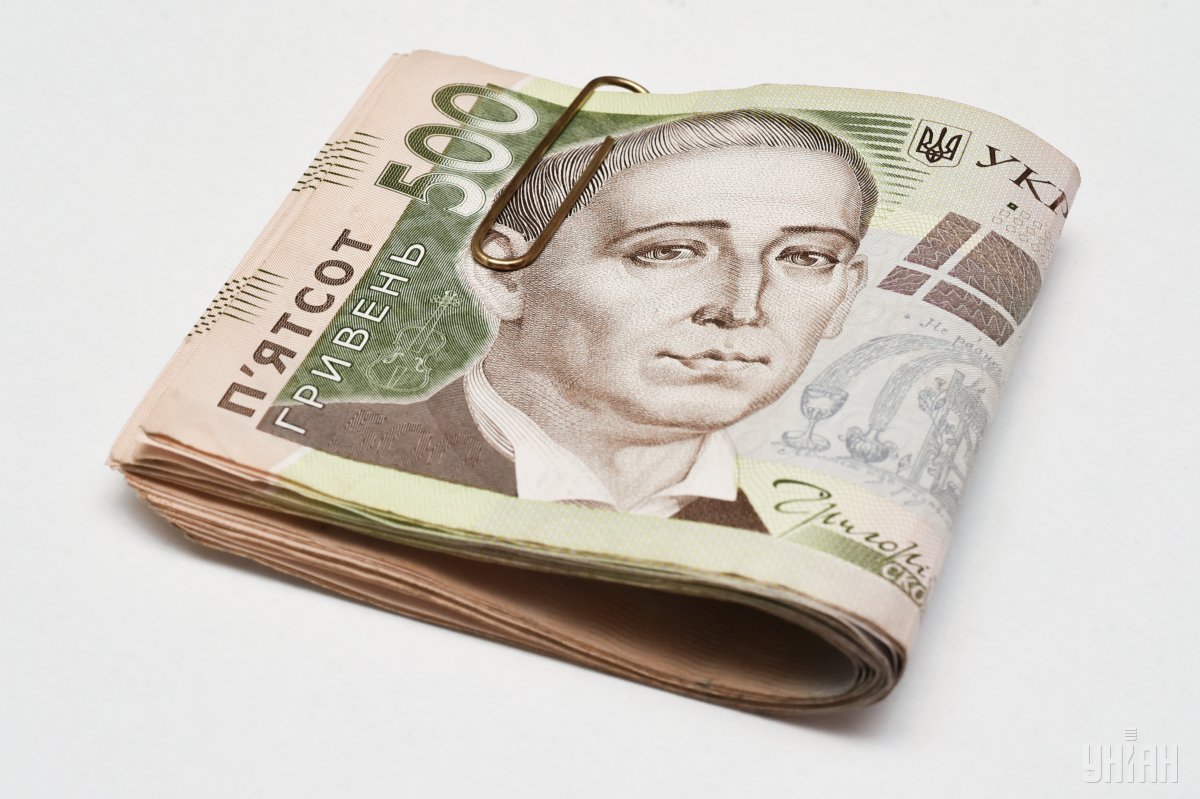
Week's balance: Punishment for Crimea, Nord Stream 2 in Germany, and oil price hikes
The Permanent Court of Arbitration in The Hague issued its award on Russia, making it responsible for the seizure of Ukrainian companies' assets in Crimea; the construction of the Russian Nord Stream 2 gas pipeline was launched in the north of Germany; and the prices of crude oil soared in connection with a decision by U.S. President Donald Trump to withdraw from the Iran nuclear deal and the imposition of sanctions on that country – these are the major economic developments of the past week.
The highlight news of this week was the first historic decision of the International Tribunal under the Permanent Court of Arbitration in The Hague – the arbitrators recognized the Russian Federation responsible for seizing property and real estate in Crimea after its occupation in 2014. The Tribunal ordered the Russian Federation to pay about $159 million in compensation in favor of 18 Ukrainian companies and one individual, as well as to compensate the legal costs.
Ukrainian Deputy Minister of Foreign Affairs Olena Zerkal called the decision of the Hague Tribunal the first victory within the legal framework to return Ukrainian assets in Crimea. "The illegal occupation has its price tag. The burden of aggression will become increasingly heavy for Russia," the official commented on the situation.
The representative of the Ministry of Foreign Affairs recalled that a number of cases of Ukrainian companies, including Naftogaz, Oschadbank, Ukrnafta and PrivatBank, were in the international courts. "The dynamics of consideration of these cases are gaining momentum. This month, hearings on the case of Naftogaz are taking place and a decision on the Oschadbank case is pending," Zerkal added, stressing that the number of companies preparing similar lawsuits is growing.
Naftogaz has already said they are waiting for a decision by the Tribunal in The Hague in the first quarter of 2019 on their lawsuit against Russia for recovery of about $8 billion of the company's losses caused by the annexation of Crimea.
The Russians reacted to the decision of the International Tribunal with their usual mantra – "there are no Russians there." "Russia was not represented in this court and did not send its representative to this trial, so we do not consider ourselves a party to the process in this case," said Russian presidential press secretary Dmitry Peskov.
Meanwhile, as explained by the Ukrainian Foreign Ministry, Russia's avoidance of this process does not waive its responsibility. The New York Convention of 1958 signed by Ukraine, the Russian Federation and more than 150 countries states that arbitration decisions are binding, and if they are not voluntarily implemented, the losses are reimbursed at the expense of the guilty party's property in any country that is a signatory to the Convention.
Financing Russian terrorism

Despite the failures on the legal front, the Russians launched the construction of the Nord Stream 2 gas pipeline in northern Germany last week. Thanks to this gas pipeline, influential German energy companies that are actively lobbying the project expect to buy Russian gas at reduced prices, ignoring the political fears of Ukraine, Poland and the Baltic countries, as well as the objections of the European Commission, which required a mandate for negotiations with Gazprom.
While on a visit to Aachen, Germany, Ukrainian President Petro Poroshenko once again stressed, while meeting with German Chancellor Angela Merkel and French President Emmanuel Macron, that Nord Stream poses a high geostrategic threat not only to Ukraine, but to the whole Europe.
"The Ukrainian gas transport system is also one of the elements of deterring the aggressor. And one cannot treat this crucial function so irresponsibly," Poroshenko said. "I am very glad that we now have broad support in the EU."
But on the same day, while on a visit to Moscow, German Foreign Minister Heiko Maas said that the German Federal Government supports the implementation of the Nord Stream 2 gas pipeline bypassing Ukraine, while Russian Foreign Minister Sergei Lavrov said that a certain amount of transit through Ukraine would remain, but this should be justified from the economic point of view.
The issue is not yet closed. On May 14, Ukrainian Prime Minister Volodymyr Groysman and Energy and Coal Industry Minister Ihor Nasalyk are planning to hold a meeting with the German Energy Minister. "We will outline Ukraine's position on Nord Stream 2. This is not an economic project, this is a purely political project aimed at squeezing Ukraine out of the transit of Russian gas," Nasalyk said.
Nevertheless, experts predict that the average price of imported natural gas in May will remain at a record high reached in April – over $300 per 1,000 cubic meters, and the reason is not only Russia's policy.
"Mad" crude after Trump decides on Iran

Oil prices on international exchanges soared and continue to grow steadily. The price of crude oil has already exceeded $76 per barrel.
And there is every reason to believe that the price of oil will reach $80 in the near future. Bank of America analysts predicted that the price of oil could rise to $100 per barrel in 2019.
And the reason is that the President of the United States announced the withdrawal from the Iran nuclear deal. This, in turn, will lead to sanctions against Tehran. And they will obviously target Iran's oil trade.
Lifting sanctions from Iran once pushed oil prices down. In a short time, they fell to $28 per barrel and bounced back three years after. Currently, oil is traded at prices of November 2014. In other words, the prices have updated their maximum within 3.5 years.
It is still unclear how high the quotations will grow. But if Europe joins the sanctions, the growth will be very significant. So far, the European Union has publicly criticized Trump's decision.
Meanwhile, oil prices had slightly decreased by the end of last week amid expectations that alternative suppliers would be able to compensate for a potential reduction in exports of Iranian crude. The steady growth in the production of crude in the United States also restrains market recovery.
Meantime, Ukrainian experts have already predicted a rise in prices in the retail market of light oil products – gasoline and diesel fuel. "The government has not taken any steps. We have not developed our own oil production and refining, so today we get the price dictated by the world market," said Oleksandr Sirenko, an analyst of the UPECO consulting company, noting that imports account for more than 80% of the domestic fuel market.
The rise in oil prices has another strong side effect: higher gas prices. Earlier this week, the Ministry of Economic Development and Trade, referring to the State Fiscal Service, reported on its website that the average price of imported natural gas in April 2018 amounted to $309.9 per 1,000 cubic meters, which was a record since May 2015. But it's only the beginning.
However, the government is in no hurry to raise prices of natural gas for households (while the International Monetary Fund strongly insists on this). At least, the Energy and Coal Industry Ministry is against this.
Cabinet in charge of privatization and deregulation

Last week, the Cabinet of Ministers, as planned, began to implement "Napoleon's plans" for the privatization of state property. In particular, the government approved the list of enterprises for sale this year consisting of 26 facilities and a package of regulations for launching the sale of small-sized assets, as well as a list of 700 enterprises for privatization in 2018-2020.
Chairman of the State Property Fund (SPF) of Ukraine Vitaliy Trubarov expects that a large-sized privatization campaign in Ukraine will begin in October, and the SPF will have time to sell all 26 enterprises from the list by the end of the year. As an incentive, the head of government warned him about his personal responsibility for conducting privatization transparently.
"You have two options: either you will go down in history as a leader with a good reputation, and the reputation cannot be written or drawn. Or you can go down in history as another corrupt official who headed the State Property Fund for a certain period of time. I want you to follow the first path," Groysman "blessed" the SPF head.
This week, the Cabinet of Ministers also adopted a package of resolutions aimed at deregulation and simplification of rules for businesses. According to Minister of Economic Development and Trade Stepan Kubiv, a risk-oriented approach to conducting business audits and a unified verification act are being introduced in our country within these decisions.
"As of today, violations are registered in 99% of business audits, but not because the authorities work well, but because their activities are aimed at applying sanctions," Kubiv explained, noting that the new approach will allow auditors to concentrate on the most risky enterprises.
Inflation left in the lurch, growth kept on the porch

Ukraine's State Statistics Service was a source of optimism last week when it announced that inflation in Ukraine in April 2018 from April 2017 slowed to 13.1% against 13.2% in March 2018 from March 2017. Prices of eggs grew most (by 93%), while tariffs on maintenance of residential buildings and adjacent territories increased by 41.6%, prices of fruit rose by 32%, those of vegetables by 23.1%, and meat products by 26.1%. Only prices of sugar decreased year-over-year.
Still high inflation did not prevent Ukrainians from improving their well-being. According to the State Fiscal Service, Ukrainians declared UAH 57.5 billion, or US$2.20 billion, in income for 2017, which was 13% up year-over-year. The number of taxpayers who declared over UAH 10 million in payment to the budget also increased – to 12 people from seven a year earlier.
Meanwhile, the European Bank for Reconstruction and Development (EBRD), the largest investor of Ukraine, announced its forecasts for Ukraine last week. The EBRD maintained its projection for economic growth in our country by 3% both in 2018 and 2019, but it warned that the implementation of the forecasts was associated with high risks, given substantial repayments of public debt in 2018-2020, as well as pending president and parliament elections in 2019.
It will be possible to see whether these forecasts are realistic only after the State Statistics Service reports this week on Ukraine's foreign trade for the first quarter and updates on the country's GDP dynamics for that period.
Olha Hordienko

